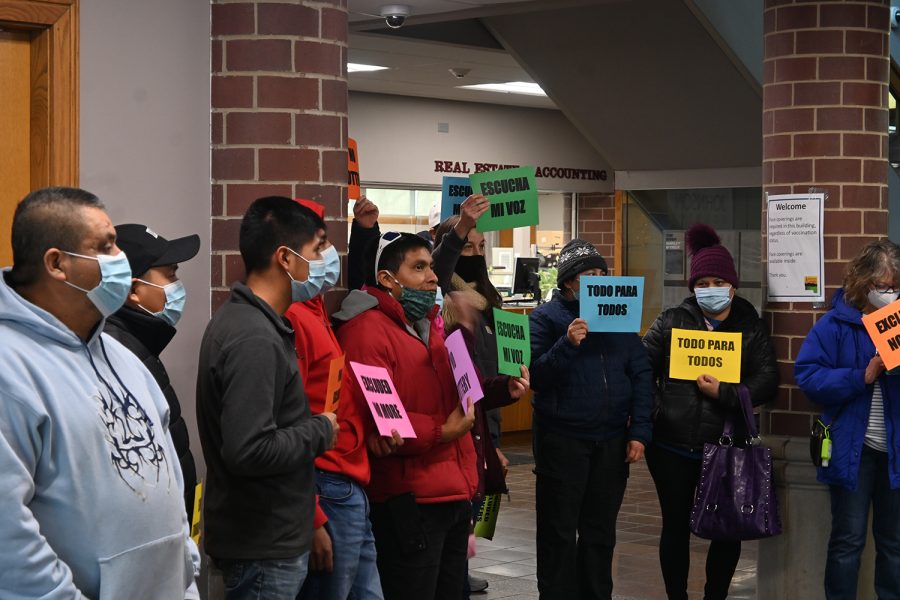After careful consideration, the Johnson County Food Bank was selected to receive $1,325 worth of food on Thursday from AFSCME Local 2985, and union officials say donations such as these are especially important during this time of the year.
“We are honored to pick the Johnson County Food Bank,” said Marty Hathaway, the president of AFSCME Local 2985. “We work here in the prison, and we know how important it is to give back to the community.”
Members of AFSCME 2985 and other community officials presented representatives from the Food Bank with the check Thursday morning at the Iowa Medical and Classification Center in Coralville.
Sarah Benson Witry, the Food Bank and emergency-assistance coordinator for the Crisis Center, said the back has seen an increase in food donations and emphasized the importance of the community’s involvement.
“Most of our funding and most of our food comes from the community,” she said. “It’s really that community support that allows us to continue to provide quality service for our clients even in the struggling economy.”
The Food Bank received a variety of foods, including tomato sauce, canned tomatoes, fruit juice, vegetables, and pasta. Officials with the organization believe that the wide variety of food would help the people serve themselves a good meal at home.
Hy-Vee, 1201 N. Dodge St., got involved with this service by partnering up with the AFSCME Local 2985 and provided groceries for the donation.
Food Bank officials said that fresh fruits, vegetables, and meats are always appreciated; however, such items are challenging to donate, as they are difficult to store. Therefore, officials said canned food is in greater demand this year as it is easier to both store and to prepare.
They also said the problem this time of year is that not many people contribute or donate outside of typical holiday seasons.
In the meantime, officials have noticed an increase both in the number of clients and the amount of food donations.
“We’ve seen new families every single month,” Witry said. “Due to the economy, due to hours being cut back, due to long-term unexpected unemployment, they are no longer able to meet their family’s needs.”
However, the increase in clients is not only caused by the struggling economy, but also by unexpected family emergencies and illnesses.
“They were making it, they were doing great,” she said. “One thing happens and they are just not able to recover as quickly as they need.”
Raymond Riezman, an economics professor at the UI, said he is hearing that the economy is slowly getting better. He said that job creation and employment numbers are steadily increasing, but not by much.
Tony Villhauer, correctional building service coordinator at AFSCME, said clients who come for the donated food are not always those that people would expect.
“These are hard-working people that may have just hit a bad time,” Villhauer said. “And if we can help them out with a week’s worth of meals or something, hopefully, for one of them, that may be something to turn the corner and they’ll be back on the road where they were.”






